In the last week over 1,000 migrants have crossed the English Channel, which is twice the number of people that the government’s barge can house on the Dorset coast.
This was unveiled last week as the latest wheeze to address Britain’s migrant crisis: a floating barge with 222 rooms to house up to 500 migrants as their asylum applications are processed. It might be an idea to put in an order for a few more.
According to Frontex, the European Border Agency, 5,622 migrants landed on the Kent coast in January and February this year, an increase of 82 per cent on the same period in 2022.
This is despite the fact there has been a marked decrease in Albanians crossing the Channel because of Rishi Sunak’s deal with his Albanian counterpart. Of the 46,000 people who arrived in the UK last year on a small boat, 12,300 were Albanians; only a couple of hundred have come in 2023.
That’s the good news for the government; the bad news is what is unfolding on the Italian coastline this year, which will inevitably have repercussions for Britain.
In the first three months of 2023, 27,280 migrants landed in Italy, numbers not seen since the height of the migrant crisis of 2015-16. On the weekend of March 25-26, the Italian coastguard rescued 3,600 migrants in 59 vessels of varying levels of seaworthiness; another 2,000 made it to Italy under the own steam or aboard an NGO vessel, one of which was the Louise Michel, financed by the British street artist, Banksy.
The numbers arriving show no sign of slowing, and on Easter Sunday, 26 small boats carrying 974 migrants landed on the island of Lampedusa. Many more people would be reaching Italy but for the work of the Tunisian coastguard. At the weekend they [10] announced that between January 1 and March 31 they intercepted 501 boats containing 14,406 people. Of that number, 13,138 were from sub-Saharan Africa.
Ivory Coast and Guinea provide the largest contingent (15 and 12 per cent respectively) of migrants arriving in Italy this year, followed by Pakistan, Bangladesh, Tunisia and Egypt.
According to the Italian press, there has been a steep increase in 2023 in the number of migrants departing from Turkey. The smuggling networks are managed by Turkish and Albanian crime syndicates but Ukrainians and Russians are the people on the ground loading the migrants into flimsy boats for a passage that costs between $6,000 to $12,000 per person. It is cheaper to attempt the crossing from North Africa – around $4,000 for each person – but this route is considered more dangerous.
In February at least 64 men, women and children drowned when their wooden boat broke up on a sandbank off the Italian coast in southern Calabria. The vessel had left the Turkish port of Izmir four days earlier for the 1,000-mile voyage.
The reaction to the tragedy illustrated the ideological chasm that exists in the West on the question of migrants. Italy’s Interior Minister Matteo Piantedosi visited the scene of the shipwreck and in a press conference said that the only way to prevent a repeat of the disaster is to stop ‘the departures’. NGOS and Human Rights Groups blamed the Italian government, and Chiara Cardoletti of the United Nations High Commissioner for Refugees urged the Italians to increase its rescue capacities. ‘This is more necessary than ever in a historical context characterized by people forced to flee from conflict and persecution,’ she said. Most of the 180 people who had set out in the boat from Izmir were Pakistani, Afghan and Turkish.
Italy’s PM Giorgia Meloni expressed her ‘deep sorrow’ at the tragedy, sentiments that were shared by all Italians at the loss of life. But other emotions may soon be expressed by her voters if migrants keep landing in droves. She campaigned on the issue, made many robust promises, but she has been powerless to stem the arrivals.
In a recent interview Matteo Villa, a Senior Research Fellow at the Italian Institute for International Political Studies, claimed that there is growing tension in the government between Meloni’s Brothers of Italy party and her coalition partners, the Northern League, headed by the Deputy PM Matteo Salvini. Northern League MPs point out to Meloni that the reason the number of migrants arriving from Africa dropped by 28 per cent in 2019 was because Salvini was the Minister of the Interior.
One of Meloni’s campaign promises was the implementation of a naval blockade of the countries from where most of the migrant boats departed; that idea was abandoned because it was ‘too expensive and unrealistic’. Similarly, Meloni appears to have given up on any meaningful reform of the Dublin Regulation that would lead to an even distribution of migrants among the 27 Member States; this is the EU regulation that stipulates that the country in which the migrant first sets foot is responsible for their registration.
But would it be in Italy’s interest to reform the Dublin Regulation? According to Matteo Villa, the law ‘does not need a reform, in the sense that the redistribution of those who disembark already takes place informally.’
More than half of the 900,000 migrants who have landed in Italy since 2013 have moved to other European countries. Britain and France are particularly popular destinations because these are the languages spoken by the migrants who cross the Mediterranean. Perhaps that’s part of the thinking behind Meloni’s new legislation to outlaw the use of English and other foreign words in official communications: to make the country even less attractive to new arrivals from Africa.
But the primary reason why so many migrants choose England is because they know that once they’re across the Channel no one is going to send them back. At least, that is what the people traffickers tell the migrants when they load them into the boats. England is the Promised Land. The Tories will have to break that promise if they’re to have any chance of winning next year’s election.
Got something to add? Join the discussion and comment below.
Get 10 issues for just $10
Subscribe to The Spectator Australia today for the next 10 magazine issues, plus full online access, for just $10.


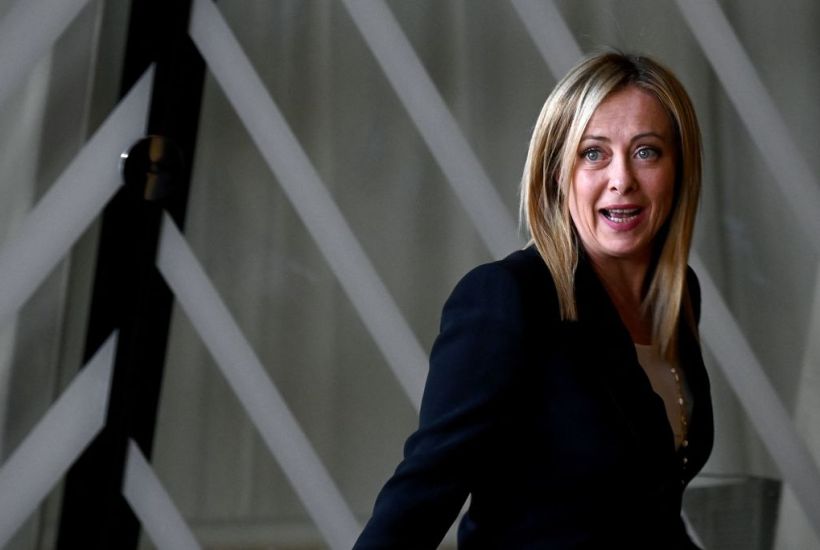

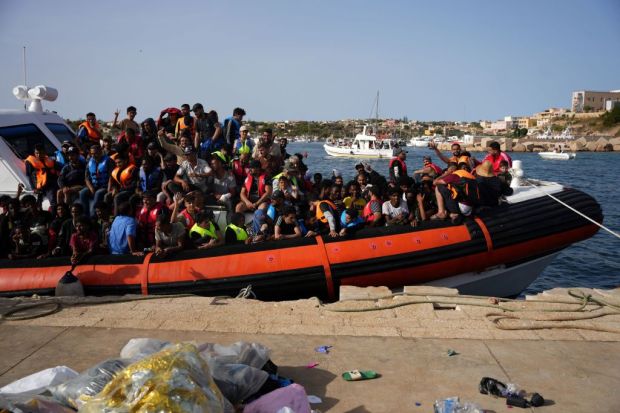
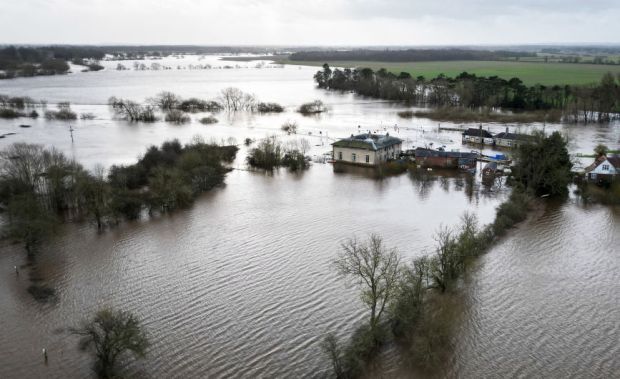
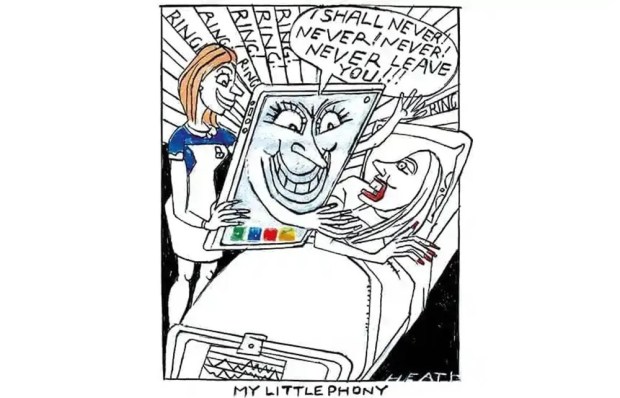
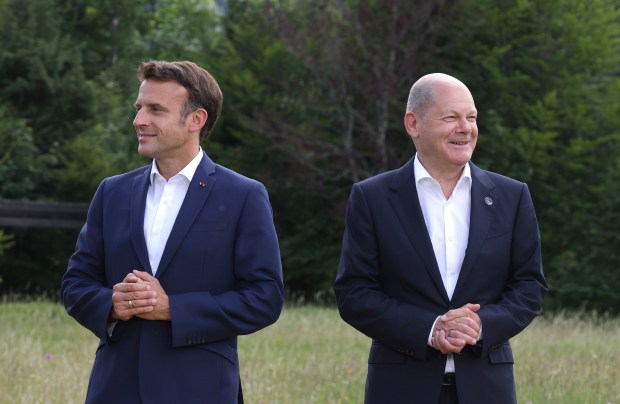
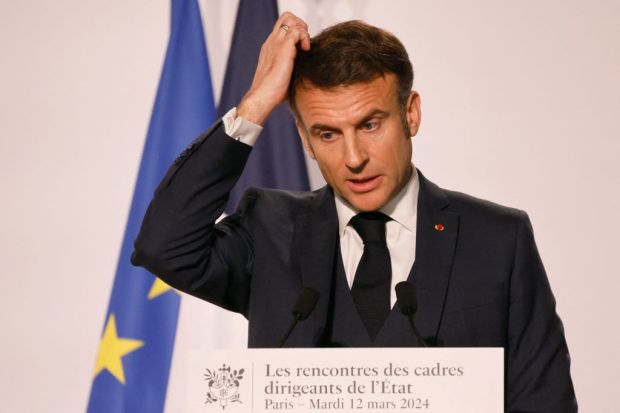












Comments
Don't miss out
Join the conversation with other Spectator Australia readers. Subscribe to leave a comment.
SUBSCRIBEAlready a subscriber? Log in